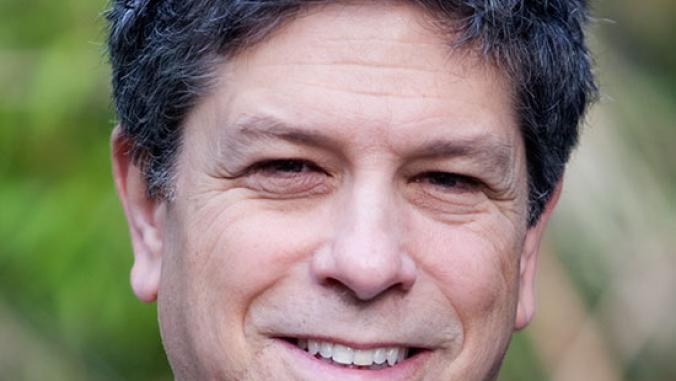Tim Greiner: Staying ahead of the sustainability curve
<p>The sustainability guru has seen environmental sustainability flourish over his career, but warns firms must move faster to address today's challenges.</p>

Image courtesy of Tim Greiner
Nature of Business radio, created and hosted by Chrissy Coughlin, is a weekly show on business and environment.
Tim Greiner was astounded by the amount of pollution he encountered as a teacher in Southeast Asia.
The blight led to a career change when Greiner decided to use his engineering background to help companies back in the U.S. reduce their waste. He co-founded the consulting firm Pure Strategies, becoming an early pioneer in the fledgling field of environmental sustainability.
When I spoke to him this week, he described the dramatic evolution of environmental sustainability over the last 15 years. During his early career, the United States was just getting over Love Canal. The focus was on how to reduce visible and toxic air pollution at factories before shifting to pollution prevention as people realized that changing the way we make products would require less money than buying pollution prevention equipment. Companies, as a result, also would have less risk.
Some companies such as Stonyfield Farm and Seventh Generation, which were Pure Strategies clients, were ahead of the sustainability curve; most others were far behind and needed help. The laggards didn't have a choice but to catch up when, after decades of little repercussions for polluting, they were faced with the passage of key laws and regulations, such as the Clean Air Act.
We've come so far since then, but we are rapidly moving from a population of 7 billion people to 9 billion. Companies no longer can ignore the finite nature of our resources. A focus on company supply chains is absolutely critical. The ubiquitous nature of social media necessitates that companies conduct themselves with as much transparency as possible.
Despite being an optimist, Greiner sees a dire situation with no magic bullet. Companies are responding, but far too slowly. We are dealing with difficult kinds of pollution that we cannot see, such as carbon dioxide.
"By the time we see the impacts of what we are putting in the air now, it will be another 15 to 20 years," Greiner says.
But Greiner does find encouragement in our youth and the large-scale social movements. He is cheered by companies such as Walmart which are evaluating the sustainability performance of their suppliers. This business-to-business interaction takes sustainability out of a niche role and makes it much more strategic.
George Papoulias edited this podcast.
Image courtesy of Pure Strategies.





